ARABELLA by R. Strauss/H. von Hofmannsthal
Seen at the Bayerische Staatsoper in Munich 14/07/2015
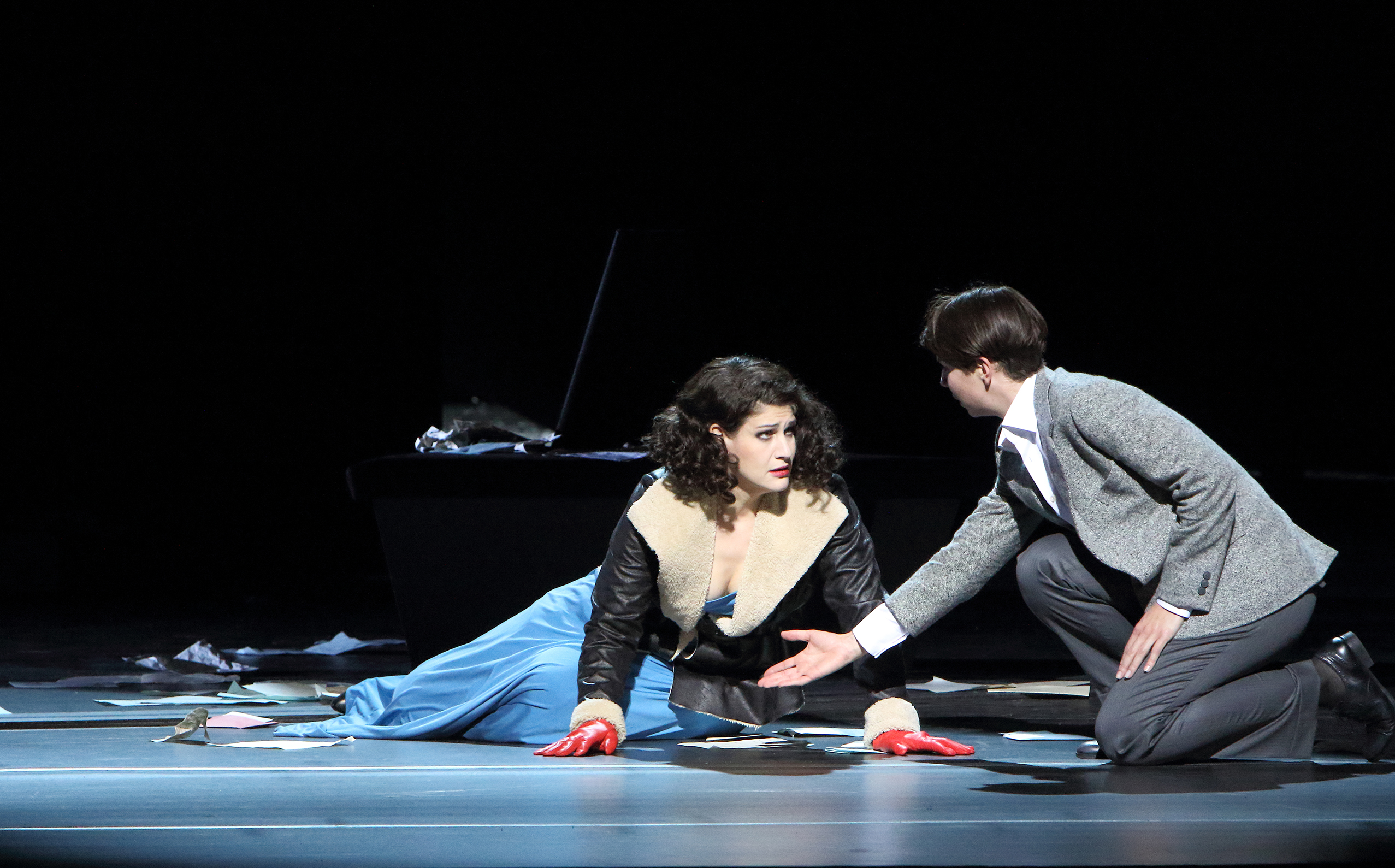
I have been racking my brain for a couple of days now, but I am pretty sure it is called an ‘archaic smile’. Anja Harteros’s lips are turned up only slightly, but enough to suggest a smile. You can see the same rather flat, but ambivalent expression in Greek stone figures of young naked youths from the 6th century BCE, the so called kouroi. Little did I know, until I wrote this piece, that Anja Harteros, actually is half-Greek.
Not only does Anja Harteros do the non-committal expression rather well, she sings the title role of Arabella effortlessly in a production that is superb all around.
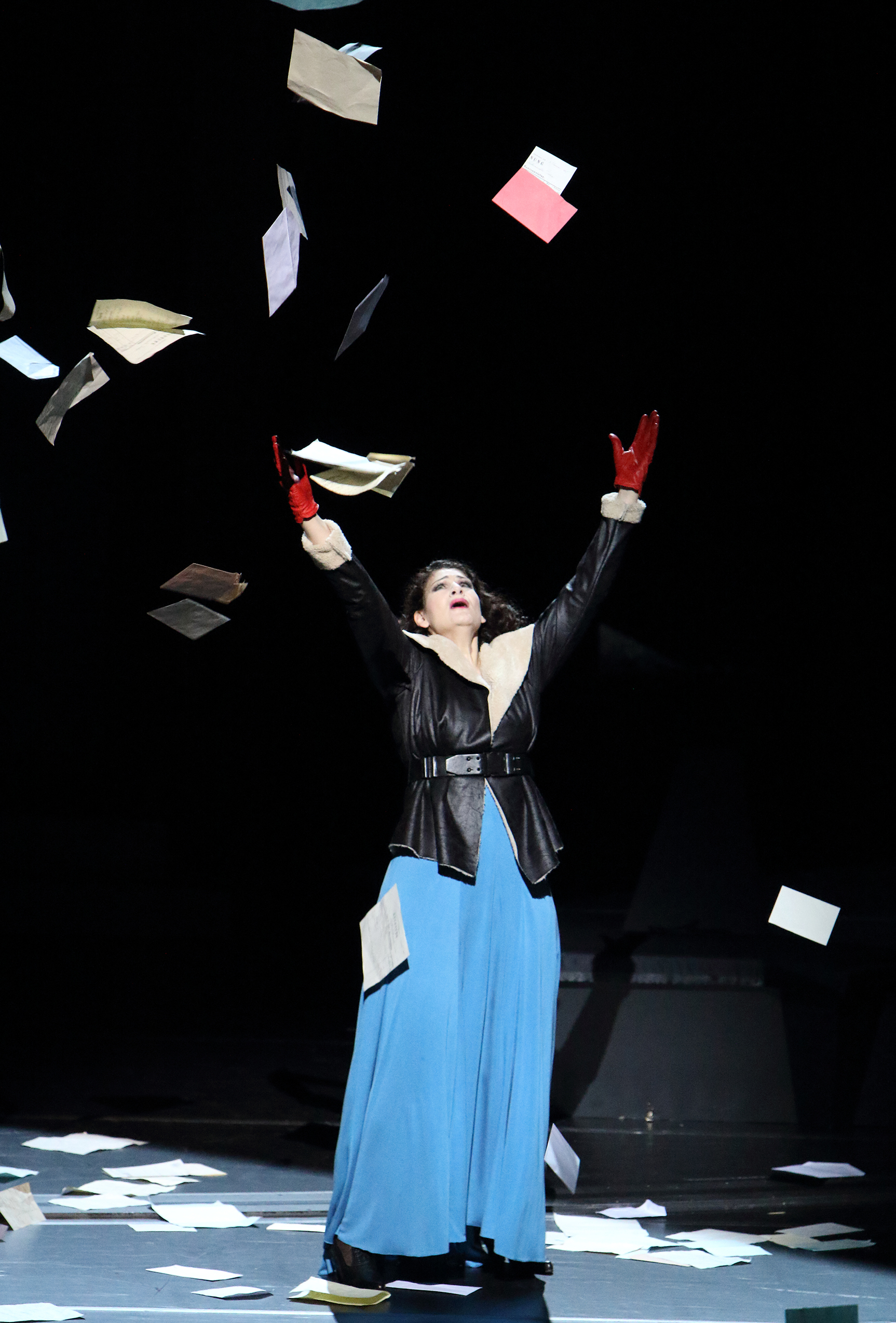
The Bavarian State Opera’s new production of Richard Strauss and Hugo von Hofmannsthal’s Arabella is musically almost as sound as it gets. Very strong singing and acting from virtually all the main characters. As a singer you could hardly wish for a better orchestra in the pit and a more attentive conductor than the Swiss maestro Philippe Jordan. Act one is dramatically weak, probably due to the fact that von Hofmannsthal died 4 years before the premiere and didn’t have the opportunity to fine-tune the libretto. Particularly acts two and three are staged very effectively by director Andreas Dresen, helped by the most dramatic and symbolic staircase(s) you will ever have seen on stage (reminiscent of the’ stairways to heaven’ in classic Hollywood musicals). The set is designed by Mathias Fischer-Dieskau whose father was a much-praised Mandryka half a century ago. The orgy after the Coachman’s ball that takes place on the stairs and in the stairwell is not irrelevant but perhaps a bit distracting. I literally nearly lost the plot, I was so busy looking at the half-naked goings-on in the background.
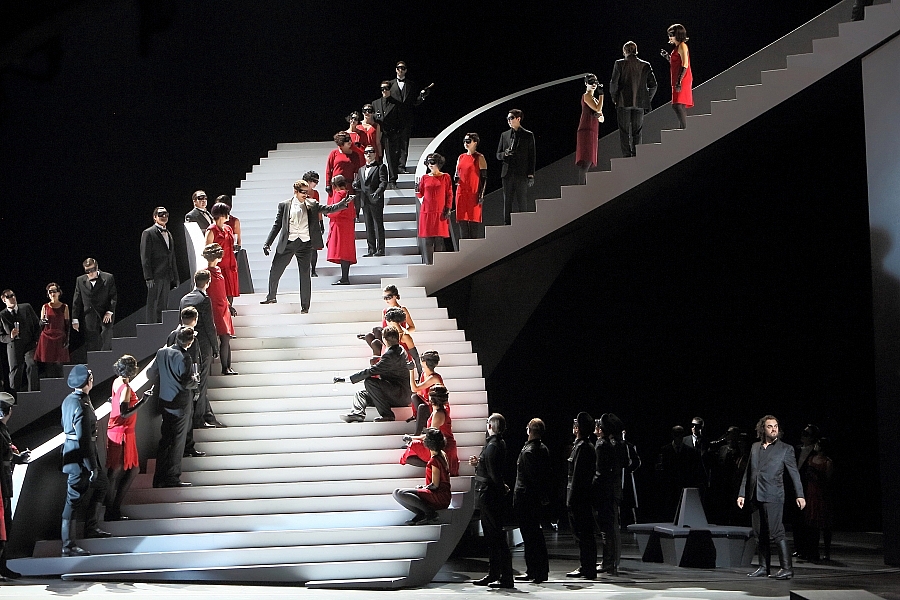
But seriously, I think the director has managed to find the right socio-political balance throughout. To set the action during the time that Strauss premiered the opera (in 1933) is a logical move. In the early years of the Nazi Party’s rule Strauss was quite happy to support their culturally restrictive and anti-Semitic directives. Yes, Richard Strauss must have recognised himself in the opportunist that Arabella so clearly is.
Arabella’s aristocratic family counts on her to help them out of their financial dire straits by simply marrying the wealthiest of her many suitors. She is perfectly confident to wait until the right man comes along. She shows very little empathy for her little sister Zdenka who runs her errands and has to dress in men’s clothing because their pathetic father, Count Waldner, can’t afford to buy her the kind of clothes that a woman of her status should wear.
Before Arabella then decides to fall in love with Mandryka (Thomas J. Mayer) she makes sure that he is wealthy enough to support the family. She is not at all concerned about the fact that he seems to have picked her mainly for her looks. Neither does it seem to bother her that he is boorish and jealous. His determined (over-my-dead-body) mentality is quite typical of the new master race that will terrorize the world during the following 12 years.
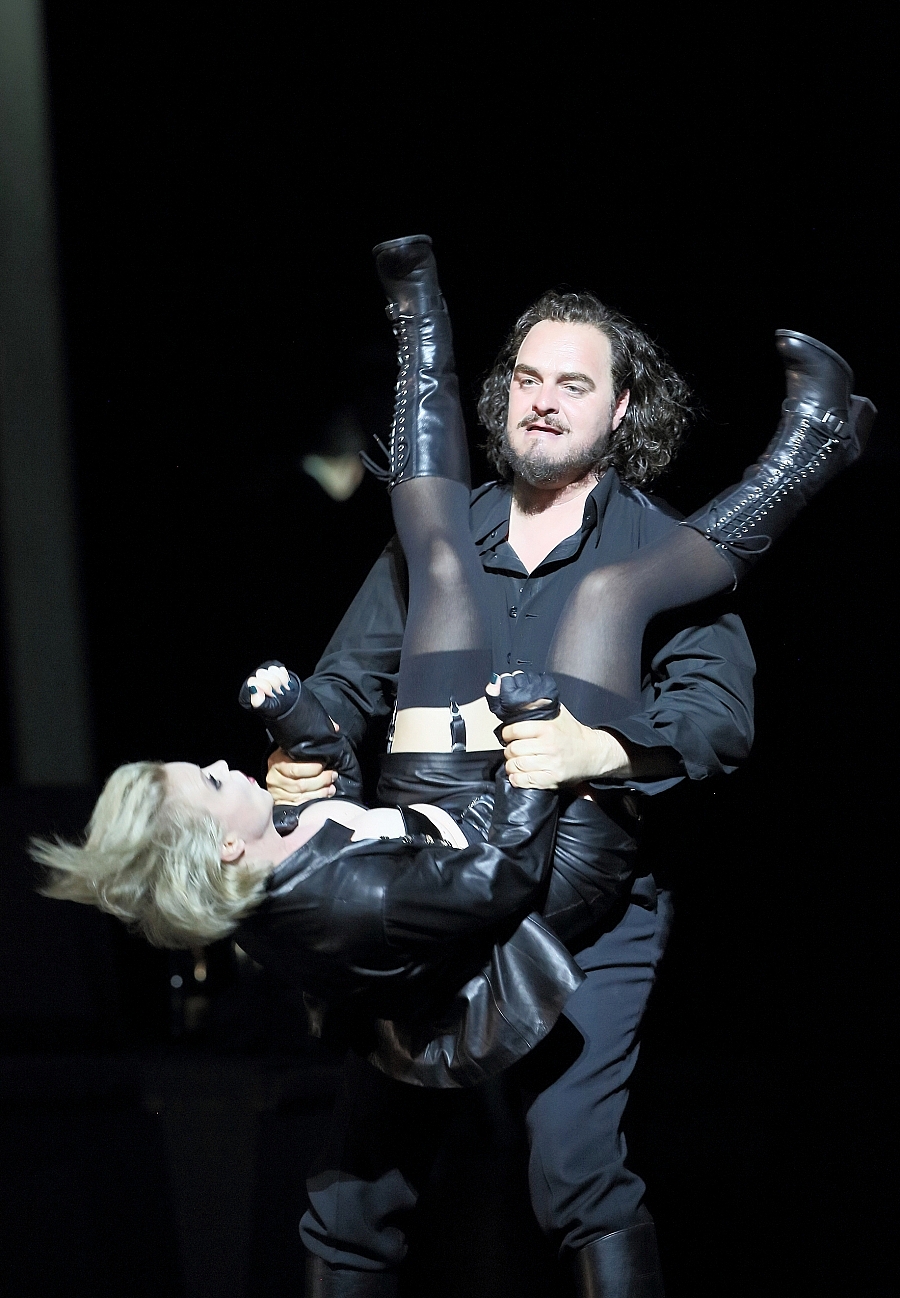
Surely Strauss’s frequent use of waltzes is meant ironically. And yes, there are many things about this opera that are reminiscent of Der Rosenkavalier, but it certainly isn’t second rate ‘The Knight of the Rose, part II’. No, this opera, unlike Rosenkavalier is all about money, money and how to get it. Arabella quickly forgives Mandryka’s resentful and brusque behaviour, when she remembers how rich he is. Arabella also heartlessly fails to defend her sister Zdenka when she is in a spot of bother at the very end. Arabella is just concerned with catching the man who can pay for the lifestyle that she thinks she deserves.
Don’t be fooled by the musically lightweight passages with waltzes and sentimental flair. Scratch the surface and you will find some very fine orchestral scoring. Strauss cleverly intertwines the various ‘leitmotifs’ that accompany both Mandryka and Arabella.’ Und du wirst mein Gebieter sein’ says it all and Harteros and Mayer manage to take romanticism to the hilt. Anaja Harteros seems to just float up to the top notes.
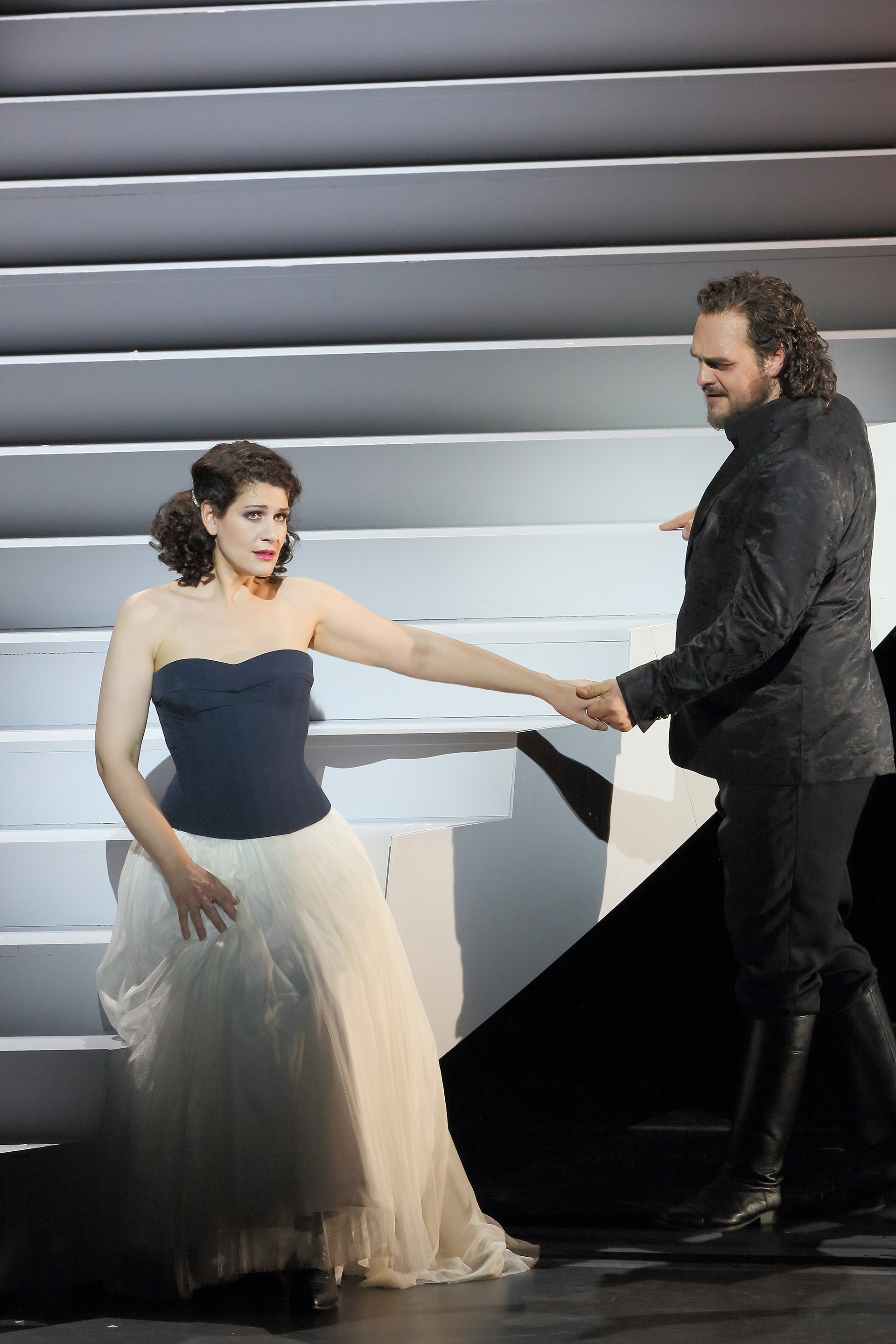
Towards the end, after Mandryka has shown himself to be an irascible hot head, Harteros almost convinces us that Arabella has chosen love over money. But there is a giveaway at the very end when Arabella offers Mandryka (Thomas Mayer) a glass of water as a symbol of betrothal (according to his Croatian custom). Harteros approaches Mayer with her archaic smile and you expect a loving embrace, but instead she flicks the water in his face.
The plot is fairly basic and von Hofmannsthal would surely have wanted to improve some scenes, had he lived a bit longer. That said, some of the libretto’s entanglements and intricacies Strauss’s favourite composer Mozart and his librettist Da Ponte would have been proud of.
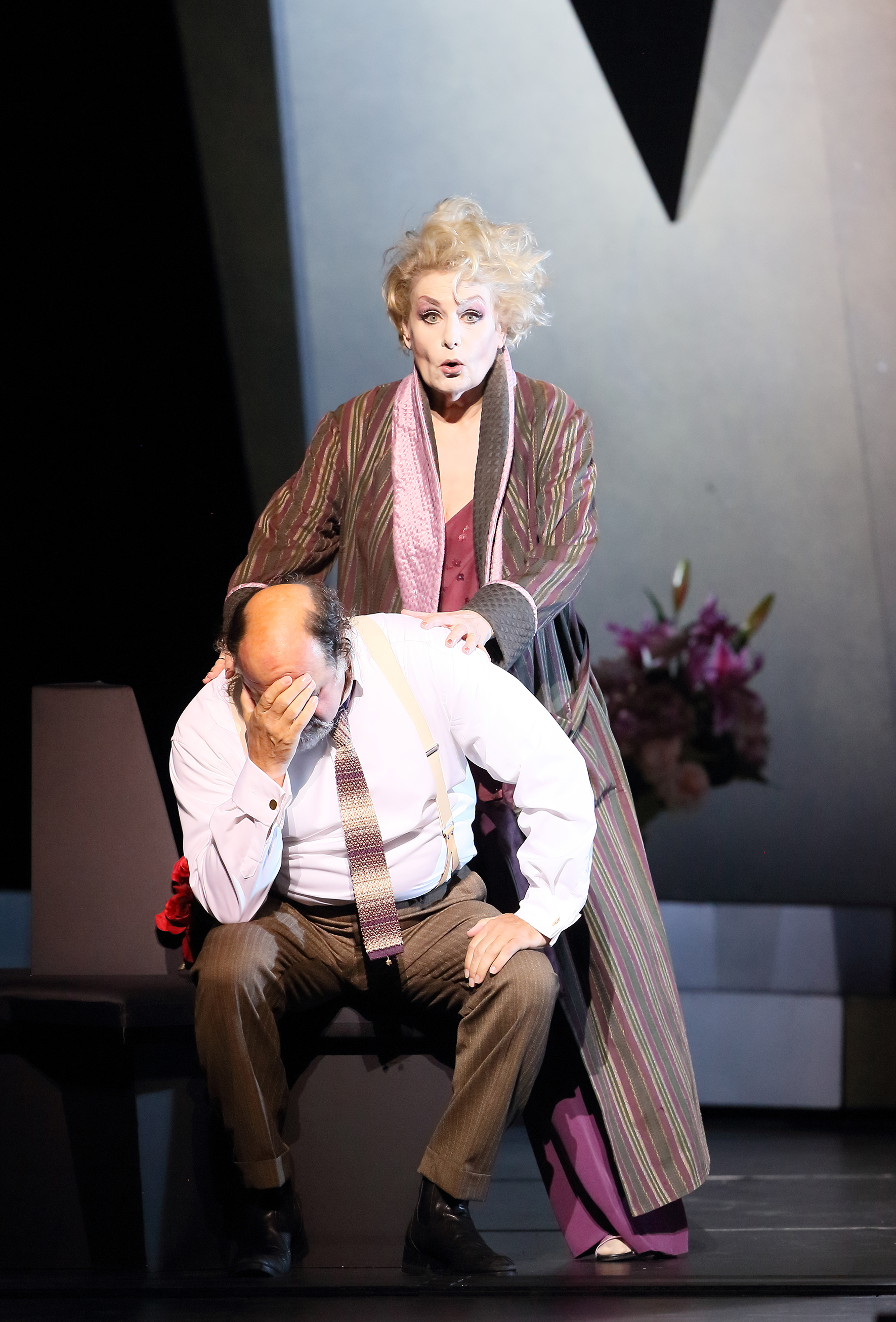
The ‘mega bass’ Kurt Rydl is excellent as Count Waldner, whose middle name seems to be failure. Von Hofmannsthal wanted to create a commedia dell’arte figure and Rydl achieves that in every sense. Hanna-Elisabeth Müller is totally convincing in the breeches role and actually quite delectable as Zdenka. Mandryka does have to win our hearts as well. Not easy, considering that he is blunt, pathologically jealous and threatens to get very physical with both sexes. He disturbs bears, openly flirts with the Fiakermilli, and dresses like a Nazi. On top of that the stage director seems to suggest that his helpers are members of the Gestapo. The baritone Thomas J Mayer’s looks are ideally suited to the role, he is a solid actor and his voice is strong and dark, as required. Despite the character’s unpleasant traits Mayer manages to make Mandryka quite likeable.
The libretto and some of the staging is genuinely amusing and the man sat next to me was chuckling throughout the performance. His wife (or perhaps his lover?) would every now and then squeeze his hand and waltz with it on the arm rest.
Arabella was premiered at this year’s Munich Opera Festival but will remain on the repertoire next season. It is well worthwhile to make a detour to Munich’s Nationaltheater to see this production.


